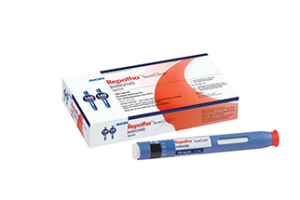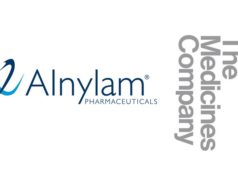
Amgen has announced that adding its PCSK9 inhibitor evolocumab (Repatha) to optimised statin therapy results in statistically significant regression of atherosclerosis in patients with coronary artery disease. The detailed results from the GLAGOV Phase 3 coronary intravascular ultrasound imaging trial were presented at the 2016 American Heart Association (AHA) scientific sessions (12-16 November, New Orleans, USA) and simultaneously published in the Journal of the American Medical Association.
The GLAGOV study evaluated whether evolocumab—a proprotein convertase subtilisin/kexin type 9 (PCSK9) inhibitor for the treatment of certain patients with elevated low-density lipoprotein (LDL) cholesterol—would modify atherosclerotic plaque build-up in the coronary arteries of patients already treated with optimised statin therapy, as measured by intravascular ultrasound (IVUS) at baseline and week 78.
The study met its primary objective showing that treatment with evolocumab resulted in a statistically significant regression from baseline in percent atheroma volume. Patients in the evolocumab arm experienced a 0.95% decrease versus baseline in percent atheroma volume compared with an increase of 0.05% vs. baseline in patients receiving optimised statin therapy plus placebo (p<0.0001; placebo arm p=0.78). The difference between the two comparators was statistically significant p<0.0001). Additionally, adding evolocumab yielded plaque regression in percent atheroma volume for a greater percentage of patients than for those receiving placebo (64.3% vs. 47.3%, respectively, p<0.0001). At baseline, 98% of patients in both arms were on high to moderate intensity statin therapy.
Patients in the evolocumab arm also experienced a mean decrease in normalised total atheroma volume of 5.8mm3 compared with 0.9mm3 seen in the placebo arm (evolocumab arm p<0.0001; placebo arm p=0.45). The difference between the two comparators was statistically significant (p<0.0001). Furthermore, adding evolocumab yielded plaque regression in total atheroma volume for a greater percentage of patients than placebo (61.5% vs. 48.9%, respectively, p=0.0002).
At baseline, patients had a mean LDL cholesterol of 92.5mg/dL across both treatment arms. During 78 weeks of treatment, the time-weighted mean LDL cholesterol level was 36.6mg/dL in the evolocumab arm, which represents a reduction of 59.8%, compared with 93.0mg/dL in the placebo arm. At week 78, the mean LDL cholesterol in the evolocumab arm was 29mg/dL, which represents a 68% decrease from baseline, and in the placebo arm was 90mg/dL.
Also, an exploratory analysis evaluated the level of plaque reduction achieved in the 144 patients with baseline LDL cholesterol levels below 70mg/dL. In this analysis, these patients experienced the greatest decrease in plaque burden from baseline (change in percent atheroma volume) with Evolocumab compared with placebo (-1.97% vs. -0.35%, respectively; p<0.0001). In addition, more than 80% of patients in this subset experienced plaque regression (by change in percent atheroma volume) with evolocumab (81.2% evolocuma; 48% placebo, p<0.0001).
Stephen J Nicholls (professor of Cardiology and deputy director, South Australian Health & Medical Research Institute, Adelaide, Australia), says: “Based on previous studies, we did not know if GLAGOV would show additional plaque regression at LDL cholesterol levels below 60mg/dL. One of the most compelling results from GLAGOV is the continued reduction of plaque at LDL cholesterol levels well below commonly accepted thresholds.”
No new safety concerns were identified in the GLAGOV trial. The incidence of treatment-emergent adverse events was comparable among both groups (67.9% evolocumab; 79.8% placebo).
Although the study was not powered to assess effects on cardiovascular events, an exploratory analysis revealed that positively-adjudicated major cardiovascular events occurred in 12.2% of patients receiving evolocumab and 15.3% in those receiving placebo. The majority of adjudicated events were coronary revascularisations (10.3% evolocumab; 13.6% placebo), followed by myocardial infarction (2.1% evolocumab; 2.9% placebo). All other adjudicated cardiovascular events occurred in ≤0.8 percent of patients in each treatment group.
Harper notes: ““The compelling data from GLAGOV remove any scientific doubt about the ability of evolocumab to lower LDL cholesterol and the impact it has on the critical underlying disease process. We remain concerned that many patients are experiencing barriers to accessing Repatha, despite their physician’s treatment recommendations. We look forward to our outcomes study, FOURIER, and will continue to work with payers to improve access for patients who need additional LDL cholesterol lowering.”













